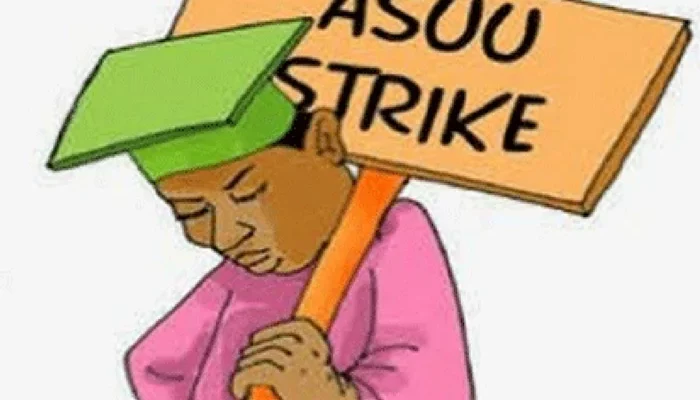Tayo AFOLABI
The Committee of Pro-chancellors of State-owned Universities, COPSUN, has described the approach of the Academic Staff Union of Nigeria Universities, ASUU president, Prof. Emmanuel Osodeke, to the issue of funding of tertiary education in a modern globalised world as being archaic, antiquated and impracticable anywhere in the world.
The was contained in a statement on Monday by COPSUN secretary, Marcus Awobinfa while reacting to a statement made by the President of the ASUU Prof. Emmanuel Osodike on a television programme on Arise, where he said that State Universities are “irrelevant and quacks” on 26th August, 2022.
Awobinfa emphasized that members of COPSUN presiding over the state university councils are distinguished and accomplished personalities.
The statement read in full, “The Committee of Pro-Chancellors of State-owned Universities read with alarm and disbelief a statement made by the President of the ASUU Prof. Emmanuel Osodike on a television programme on Arise, where he said that State Universities are “irrelevant and quacks” on 26th August, 2022.
“Our first reaction was to ignore this tendentious, ill conceived and flagrant unconscionable statement by the President of ASUU, but on reflection, it was thought necessary to do a rejoinder to this rather unfortunate statement having regard to the position of the President of ASUU in the scheme of things in our University system in Nigeria.
Though, COPSUN will not want to go into any diatribe with the President of ASUU, the Committee wishes to state as follows to put records straight:
1. That the Pro-Chancellors of our State Universities and indeed members of the Councils are distinguished and accomplished eminent persons who had served and still serving this Nation in many capacities. Amongst the members are retired Ambassadors, retired Generals in the Armed forces, retired Vice-Chancellors, Senior Advocates of Nigeria, renowned politicians and other distinguished professionals. It is therefore insulting, contemptuous and unbecoming for the President of ASUU to state that these esteemed individuals are presiding over quack and inconsequential Universities.
2. It belies belief that the President of ASUU does not realise that his loquacious vituperation and obsolete stalinist, centralised, unpopular approach to the issue of funding of tertiary education in a modern globalised world is archaic, antiquated and impracticable anywhere in the world.
COPSUN believes that this is an auspicious time for ASUU to creatively work with all stakeholders to tinker out a compromise that will bring back to the campuses the young men and women who have been insensitively thrown out of the universities for the last six months.
COPSUN wishes to appeal to the President of ASUU to realise that the membership of ASUU is voluntary. Therefore, it is not his ill-informed approach and denigration of state universities that will lead to fashioning out creative approaches to avoid existential extinction that will solve the myriad of problems confronting University system in Nigeria.
5. The very unfortunate ill digested view of the President of ASUU has vindicated the position of this Committee on the following issues:
(a) The negative professionalisation of offices of the Unions that operate in our Universities and the unserious believe among many members of the Unions that the Unions are superior to the Councils of the Universities that are their employers.
(b) The need for immediate democratisation of the membership of Unions in the universities to the extent of the freedom of any individual to belong to a Union with options of not belonging.
(c) Devolution of powers on the issues of labour, wages and salaries with freedom of the employers to negotiate with their employees, as it is practiced in other parts of the world, where we borrowed the University system.
(d) State Universities cannot be forced or coerced to implement agreements reached between the Federal Government and her workers in the Universities to which they are not parties.
(e) It is time to respect the Federal nature of our government in all matters and not selectively, especially on the issues of salaries and wages.”








Comments